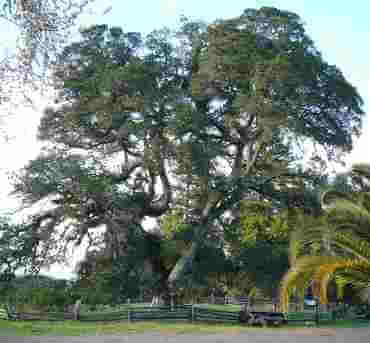Arcana Coelestia # 96
96. The implications of the statement that Jehovah God 'breathed into his nostrils' are as follows: In ancient times, and in the Word, the nostrils meant something that was pleasing by virtue of its odour, which means perception Consequently one reads many times of Jehovah 'smelling an odour of rest' from burnt offerings and from the things which represented Him and His kingdom. And since matters of love and faith are most pleasing to Him, it is said that He breathed the breath of life' through his nostrils. This is why Jehovah's Anointed, who is the Lord, is called 'the-Breath-of-nostrils', Lamentations 4:20. And this was what the Lord Himself meant by breathing on His disciples, in John,
He breathed and said, Receive the Holy Spirit. John 10:22.
Tree

In general, trees represent the deepest and most significant intellectual concepts: the ones that come to us most directly from the Lord. This varies depending on us and our states: the people of the Most Ancient Church, who were in a state of loving the Lord, understood truth automatically and internally through what the Writings call "perception"; people in lower states (including most of us) have to work a little harder to learn it from the Word and by willing to follow the Lord. In other parts of the Bible, especially in the prophets and New Testament parables, the meaning of "tree" is broader, meaning not just a person's intellectual concepts but the whole person.
'Trees,' as in Joel 1:10-12, signify knowledges.







